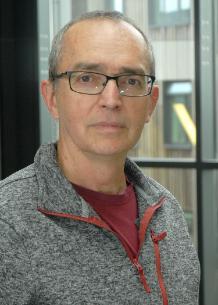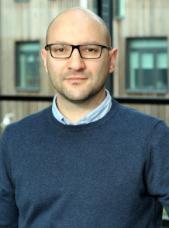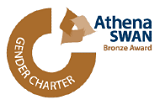
-757x284.jpg)
About the Department
The Department of Computer Science is a vibrant research-driven community of 55 academic staff, 67 teaching staff, 36 research associates and 46 support staff delivering an excellent education to 840 undergraduates, 285 Masters and 209 PhD students in a range of innovative and internationally recognised research-led programmes.
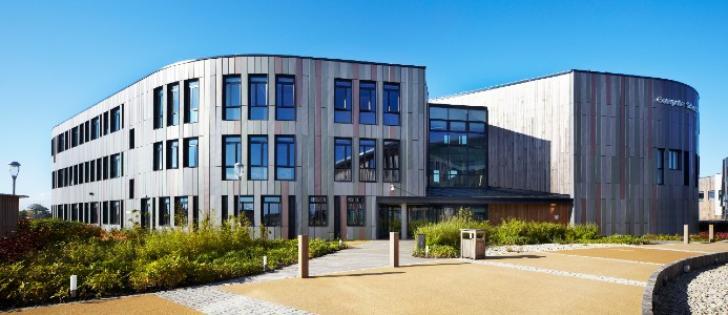
The Department has a very strong international research record; the Research Excellence Framework (REF) 2021 results ranked York’s Computer Science 9th overall in the UK, with 100% of our academic staff rated as “world-leading” or “internationally excellent”. These results are confirmation of the Department’s long-standing global reach and real-world significance, affirming us as one of the best departments in the country for nurturing excellent research that achieves economic, social and cultural impact. All aspects of our impact and environment were judged to be of world-leading or international standard.
The Department has long-standing links and strategic partnerships with industry and funders, including global organisations, small and medium-sized enterprises, and major charities. The Department is also highly regarded for its Continuing Professional Development courses, delivering high-quality specialist teaching both on and off-site.
Research
The Department has an established reputation for conducting fundamental and empirical research into the development and engineering of safe, ethical and secure computational systems for the amelioration of human life and conditions.
Computer science profoundly influences most industries – from healthcare to gaming to security. At the University of York we understand the extensive reach of computer science research and the interdisciplinary nature of many of the problems computer scientists tackle.
The Department collaborates with industry, charities and policymakers, as well as scientific communities nationally and internationally to respond to global challenges.
Research Groups
Our core research strengths reflect our expertise and understanding of interdisciplinary computer science research, and is centred around nine groups:
- Artificial Intelligence
- Automated Software Engineering
- Cyber Security and Privacy
- High Integrity Systems
- Human Computer Interaction
- Non-Standard Computing
- Real-Time and Distributed Systems
- Software Engineering for Robotics
- Vision, Graphics and Learning
Additionally, the Department collaborates across disciplines and with industry to tackle major global challenges, via these research centres:
- Assuring Autonomy International Programme (AAIP)
- EPSRC Centre for Doctoral Training in Intelligent Games and Game Intelligence (IGGI)
- Institute for Safe Autonomy (ISA)
- Quantum Communications Hub
- YorRobots
The Department’s particularly strong partnerships in interdisciplinary research sit under the themes of Technologies for the Future; Risk, Evidence and Decision Making; and Health and Wellbeing.
-750x475.jpg)
Teaching
In York, Computer Science is taught as an engineering discipline, and students get a "full spectrum" education from theory to practice, covering hardware design as well as software, and involving individual and group projects (see: https://www.cs.york.ac.uk/undergraduate/).
There are specialist variants of our degrees, e.g. CS with Artificial Intelligence, and CS with Cyber Security. All students have the option to go on an industrial placement year as an integral part of their degree course. A small number of focused MSc courses are taught (see: https://www.cs.york.ac.uk/postgraduate/) and there is a thriving postgraduate school.
There are also online MSc degrees that have been launched, aimed at upskilling students with no previous Computer Science experience (https://online.york.ac.uk/study-online/), and highly-regarded Continuing Professional Development courses in Systems Safety.
Community
The Department of Computer Science and the University is committed to promoting a diverse and inclusive community - a place where we can all be ourselves and succeed on merit. We offer a range of family-friendly, inclusive employment policies, flexible working arrangements, staff engagement forums, campus facilities and services to support staff from different backgrounds.
The Department has 47 Professional Support Service staff, undertaking a wide range of administrative and technical roles. The teams provide ongoing support for all staff and students and keep the Department running smoothly.
Senior Leadership Team
The Department is managed by the Head of Department, assisted by four Deputy Heads.
|
Professor Paul Cairns |
Jayne Lawrence |
||||
|
Professor Iain Bate |
Dr Simon O'Keefe |
Professor Ibrahim Habli |
|||
Departmental Affiliations



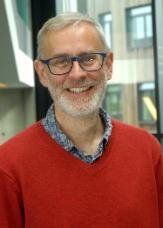

-162x227.jpg)
